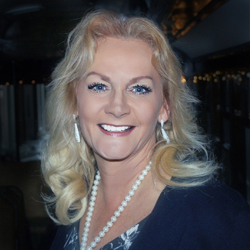Getting Neighborhoods to Bounce Back
‘Resiliency’ is the new focus of the revamped MRP.
.jpg) |
|
A house in a high-foreclosure neighborhood, part of Melissa Curie's research into how newly constructed neighborhoods responded to the recent 'Great Recession' as a measurement of neighborhood-level resiliency. |
ALBANY, N.Y. (April 4, 2017) — Urban and regional planning has traditionally trained its focus on housing and economic development, but recently another player has come distinctly into view. This is resiliency, and UAlbany’s Master in Urban and Regional Planning (MRP) now reflects this paradigm shift in its community planning specialization.
An expanding concept of resilience is being adopted in many fields that overlap planning — for example transportation and emergency preparedness — says Melissa Currie, assistant professor of Geography and Planning, whose research has focused on community resilience at the neighborhood-level.
“This expanded approach to community planning emphasizes the building of capacity in neighborhoods, especially those that are downtrodden, to better prepare them for a society in which volatility is the new normal,” said Currie.
“A resilient community is one that can respond to and recover from a shock—whether from internal or external forces — such as climate change, economic crisis, disasters, or physical and social changes to the built environment. It is also one that is able to persist, whether change occurs or not.”
 |
|
Melissa Curie |
Planning that operates from a framework of resilience, she said, embraces these uncertainties and adapts to a community’s current and future needs. Currie serves as an advisor to students in the community planning specialization. Her own research into planning at the neighborhood level is an emerging branch in resilience theory that acknowledges the importance of the interactions between people and place, and the social and political elements of resilience in urban areas.
Her Fall 2017 course, Community Resilience, which she developed, will explore community context, socioeconomic conditions, residents’ resources, environmental considerations, equity, and the availability of reserves as the basis for building resilience in individuals and communities. She will also be presenting her research at the 2017 National Conference of the American Planning Association, to be held this May in New York City.
The interdisciplinary MRP program allows students to choose from three alternative specializations to develop expertise in a specific field of planning including: Community Planning, Environmental and Land-Use Planning, and Transportation Planning. Fully accredited by the Planning Accreditation Board, the sole national accrediting body for planning programs, it is a student-centered professional degree that focuses on the integration of scholarship and practice.
“Our MRP program emphasizes the importance of creativity, public involvement, social justice, professional ethics, and environmental sustainability,” said Currie. The program also encourages individualized programs of study, developed in consultation with a faculty advisor in one of the specializations.
The new Community Planning specialization represents a re-tooling of what was previously the Housing, Local Economic Development, and Community Planning track.
![]() For more news, subscribe to UAlbany's RSS headline feeds
For more news, subscribe to UAlbany's RSS headline feeds
A comprehensive public research university, the University at Albany-SUNY offers more than 120 undergraduate majors and minors and 125 master's, doctoral and graduate certificate programs. UAlbany is a leader among all New York State colleges and universities in such diverse fields as atmospheric and environmental sciences, business, education, public health,health sciences, criminal justice, emergency preparedness, engineering and applied sciences, informatics, public administration, social welfare and sociology, taught by an extensive roster of faculty experts. It also offers expanded academic and research opportunities for students through an affiliation with Albany Law School. With a curriculum enhanced by 600 study-abroad opportunities, UAlbany launches great careers.


